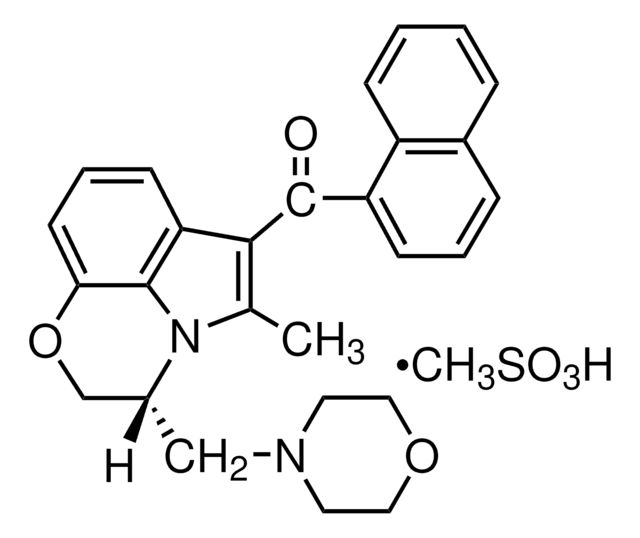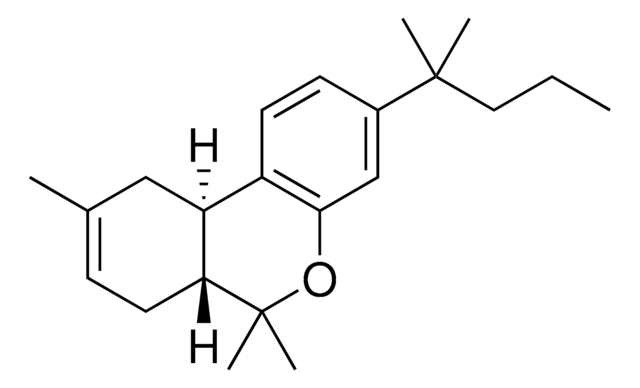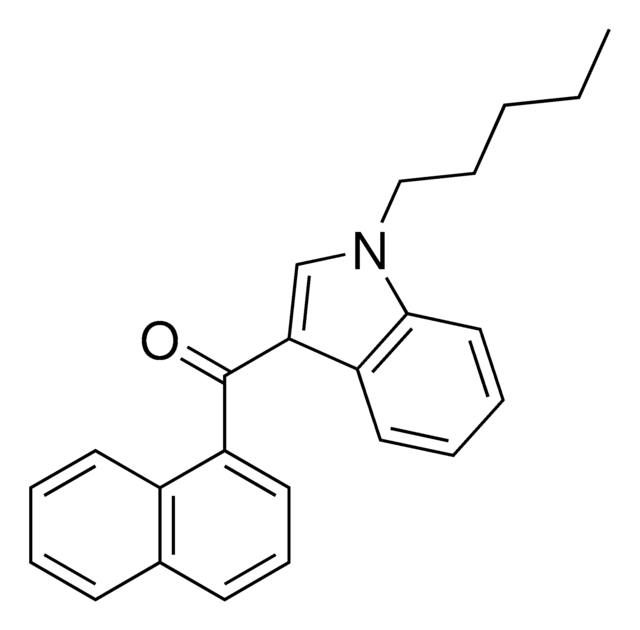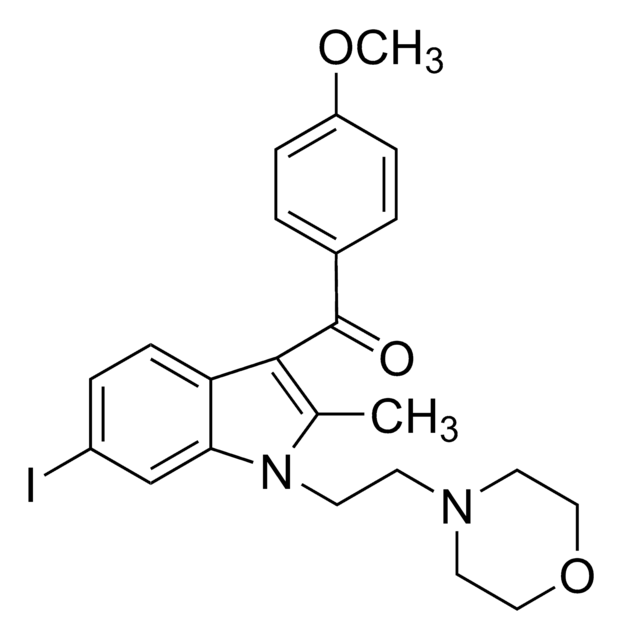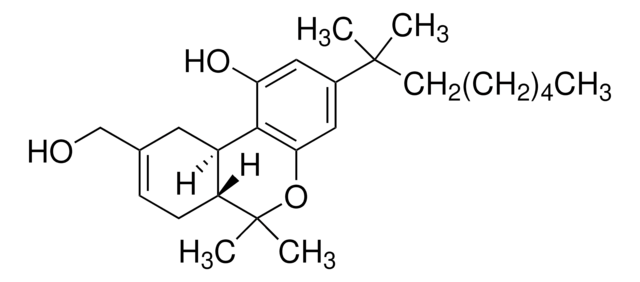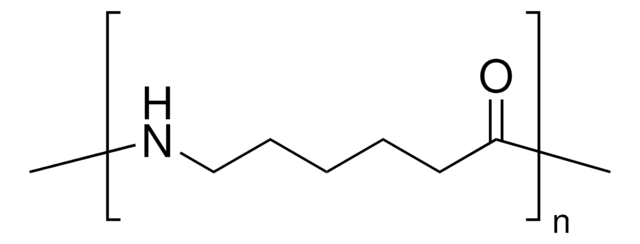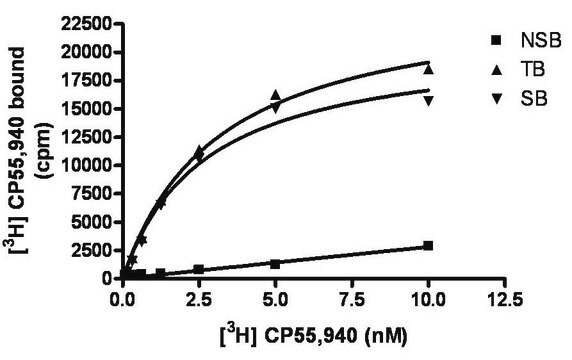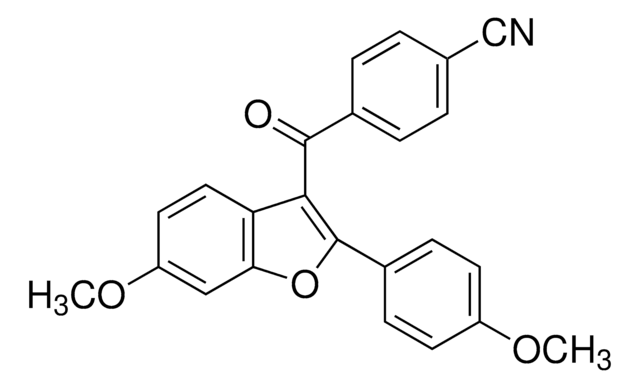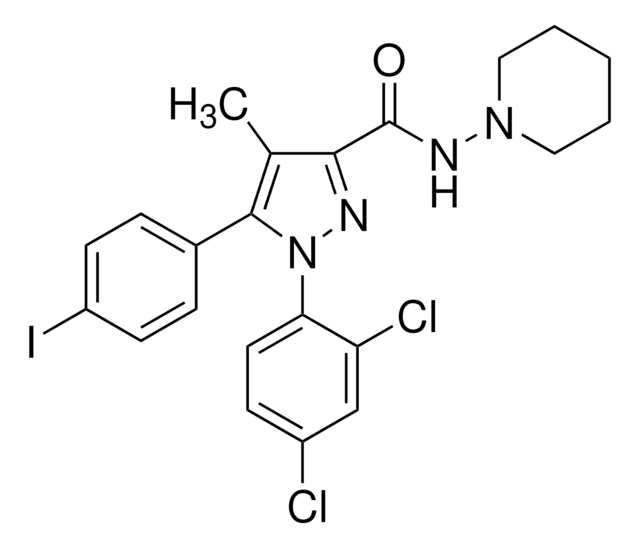C1112
CP-55940
>98% (HPLC), powder
Synonym(s):
5-(1,1-Dimethylheptyl)-2-[5-hydroxy-2-(3-hydroxypropyl)cyclohexyl]phenol
About This Item
Recommended Products
Quality Level
Assay
>98% (HPLC)
form
powder
optical activity
[α]/D -24 to -30°, c = 0.2 in chloroform-d
drug control
regulated under CDSA - not available from Sigma-Aldrich Canada
storage condition
desiccated
solubility
DMSO: 15 mg/mL
H2O: slightly soluble
storage temp.
2-8°C
SMILES string
CCCCCCC(C)(C)c1ccc([C@@H]2C[C@H](O)CC[C@H]2CCCO)c(O)c1
InChI
1S/C24H40O3/c1-4-5-6-7-14-24(2,3)19-11-13-21(23(27)16-19)22-17-20(26)12-10-18(22)9-8-15-25/h11,13,16,18,20,22,25-27H,4-10,12,14-15,17H2,1-3H3/t18-,20-,22-/m1/s1
InChI key
YNZFFALZMRAPHQ-SYYKKAFVSA-N
Gene Information
human ... CNR1(1268) , CNR2(1269)
rat ... Cnr1(25248)
Application
Biochem/physiol Actions
Features and Benefits
Signal Word
Warning
Hazard Statements
Precautionary Statements
Hazard Classifications
STOT SE 3
Target Organs
Respiratory system
Storage Class Code
11 - Combustible Solids
WGK
WGK 3
Flash Point(F)
Not applicable
Flash Point(C)
Not applicable
Personal Protective Equipment
Certificates of Analysis (COA)
Search for Certificates of Analysis (COA) by entering the products Lot/Batch Number. Lot and Batch Numbers can be found on a product’s label following the words ‘Lot’ or ‘Batch’.
Already Own This Product?
Find documentation for the products that you have recently purchased in the Document Library.
Customers Also Viewed
Articles
A large variety of cannabinoid drug standards, along with an HPLC method with the Supelco Ascentis® Express RP-Amide column, are presented in this article.
Our team of scientists has experience in all areas of research including Life Science, Material Science, Chemical Synthesis, Chromatography, Analytical and many others.
Contact Technical Service